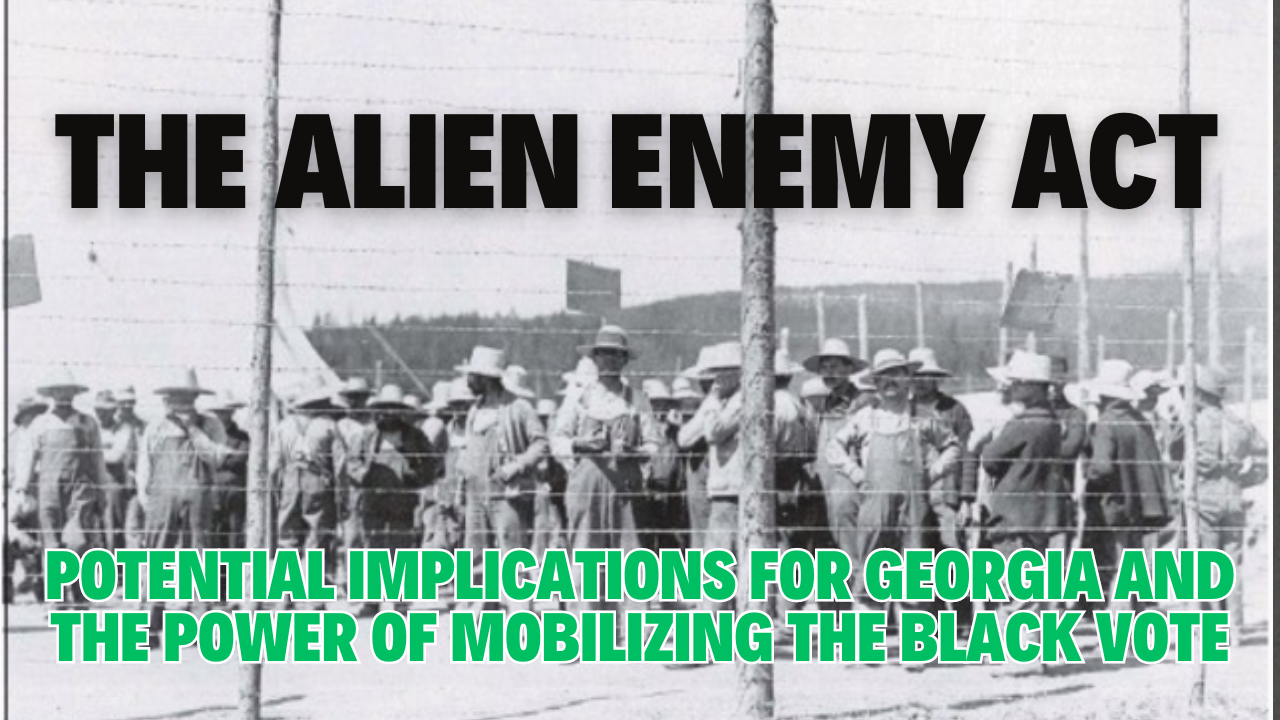The Alien Enemy Act: Implications for Georgia and the Power of Mobilizing the Black Vote

Historically, the fabric of America's laws and policies has been a confluence of both inclusive ideals and exclusivist fears. In today's climate, it's crucial to understand these laws, their implications, and how communities can come together in response. Let’s delve deep into the Alien Enemy Act of 1798 and explore its potential impact on Georgia's residents and the power of the black vote.
Understanding the Alien Enemy Act
In 1798, amidst an atmosphere of political tension and international intrigue, the Federalist-controlled Congress passed a set of laws known as the Alien and Sedition Acts. Of these, the Alien Enemy Act stood out for its potential reach. At its core, the Act endowed the President with the power to detain or deport male citizens of nations at war with the U.S. At face value, it seems like a wartime provision. However, a closer examination reveals wording broad enough for wider, potentially concerning interpretations.
Georgia's Undocumented Immigrants in the Crosshairs?
Like many states, Georgia is home to many communities, including undocumented immigrants who contribute richly to the state’s culture and economy. These individuals could find themselves at risk due to the Alien Enemy Act. While the Act wasn’t crafted with undocumented immigrants in mind, its encompassing language suggests that any non-citizen from a country labeled as "hostile" could be impacted.
Imagine a scenario where the U.S., without an official war declaration, considers a country hostile. Suddenly, countless undocumented immigrants from that nation in Georgia may face the grim prospect of detention or deportation. Beyond the immediate impact on the affected individuals, such policies could tear families apart and disrupt communities that have been building lives in Georgia for years or even decades.
The Slippery Slope of Broad Legislation
The potential misuse of the Alien Enemy Act goes beyond its original intent. Given the strict immigration stances of former President Trump’s administration, one might see how this Act could be invoked to target individuals from nations merely deemed adversarial. Such a possibility could set a dangerous precedent, especially in a globalized world where "adversary" can be a fluid term.
Furthermore, such policies might inadvertently cast a shadow over marginalized groups. For instance, the LGBTQ community, among others, could be indirectly affected by a climate of fear. When broad policies target specific groups, it often catalyze a cascade of discriminatory practices, affecting people's everyday lives, well-being, and mental health.
The Resilient Response: Mobilizing the Black Vote
Amidst these potential challenges, there lies an empowering solution: the mobilization of the black vote. The black community in the U.S., and by extension in Georgia, has historically been a transformative force in elections.
To tap into this potential, collaboration emerges as the beacon. Grassroots organizations rooted in the black community can play a pivotal role. Their deep connections and the trust they've built within the community can help communicate the profound importance of every single vote.
Moreover, engaging with influential figures—religious leaders, activists, or celebrities—can serve as a force multiplier. When these revered figures stand in solidarity and echo the importance of voting, their words can resonate far and wide.
Of course, collaboration is most potent when there's alignment. As history has shown us time and again, presenting a united front against challenges can be transformative. Campaigns and outreach programs can leave lasting impacts by pooling resources and aligning objectives.
In Conclusion
Despite being centuries old, the Alien Enemy Act serves as a reminder of the continuous need for vigilance and understanding when it comes to policy interpretations. As we grapple with its potential implications, we must also embrace the tools at our disposal, such as the potent force of voter mobilization. In unity and understanding, communities can navigate challenges and transform them into catalysts for positive change.